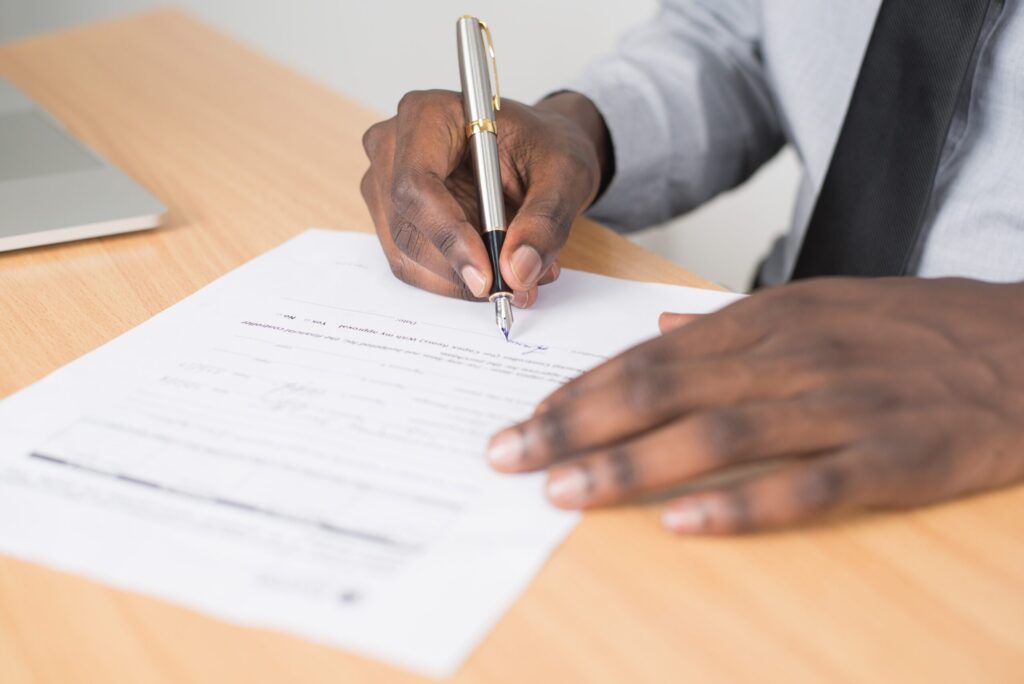
ILR Long Residence: What Is “Lawful Leave”?
We are often asked, by those applying for ILR on long residence ground, what counts as lawful leave in the context of applying for ILR on 10 years long residence ground. This is a particularly important aspect of the immigration rules concerning eligibility for ILR for those who have had a complicated immigration history in the UK including periods of time spent in the UK without leave to remain or enter.
In this post, we will examine all the different circumstances where residence in the UK may be considered as “lawful” residence for the purposes of an ILR long residence application even if the applicant has spent time in the UK without valid leave.
What Is “Lawful Leave”?

Before assessing what may technically constitute lawful leave for the purposes of an ILR long residence application, it is instructive to begin with an explanation of what would ordinarily be construed as lawful leave. Paragraph 276A of the Immigration Rules defines lawful residence as a period of continuous residence where the applicant lived in the UK with one of the following:
- Existing leave to enter the UK or remain in the UK (a valid visa granted from within or outside the UK);
- Temporary admission within section 11 of the 1971 Immigration Act where leave to enter or remain is subsequently granted;
- An exemption from immigration control, including where an exemption is followed by a grant of leave to enter or remain.
Treatment Of Temporary Release
It is important to bear in mind that an applicant who spends time in the UK on temporary admission or whilst being exempt from immigration control will only be able to count it as lawful residence if the time spent on temporary release or whilst being exempt from immigration control is immediately followed by the grant of leave to remain. For example, an applicant who is detained on arrival in the UK and is subsequently released on temporary release or immigration bail, can rely on time spent on temporary release as lawful residence if an application for leave is made, which leads to the grant of leave to remain.
On the other hand, if an application for leave, made by a person whilst on temporary release, is refused, the time they have spent n temporary release will not count as lawful residence for the purpose of an ILR long residence application.
Time Awaiting a Decision On An Application or An Appeal
There are circumstances where time spent in the UK whilst awaiting the outcome of a valid application for leave to remain or the outcome of an appeal against refusal of an application for leave can be considered as lawful leave. Under sections 3C and 3D of the Immigration Act 1971 leave can be extended by the automatic operation of the law in certain circumstances. Section 3C and 3D are legislative instruments designed to prevent individuals from becoming overstayers if they have taken steps to extend their leave before their leave has expired.
Section 3C Leave -
Section 118 of the Nationality, Immigration and Asylum Act 2002 added section 3C to the Immigration Act 1971 so that an applicant’s leave is extended by operation of the law if they have submitted a valid application for extension of their leave prior to the expiry of their existing leave. Under Section 3C the time spent in the UK whilst awaiting a decision on an in-time application can be considered as lawful leave. It is important to note, however, that time spent awaiting a decision on an application can only be considered as lawful residence of the application ultimately succeeds.
Where an in-time application for extension of leave to remain has been refused and the applicant has exercised their right to appeal the UKVI’s refusal, time spent in the UK awaiting the outcome of the appeal will also be considered to have been lawful resident.
For clarity, let’s look at some examples of scenarios where Section 3C leave doers and does not become operational.
Example 1
A has leave to remain as a Tier 4 (General) Student valid until 30 June 2021. He applies for extension of his student leave before 30 June 2021 and A is granted leave to remain on 30 November 2021. In this example, the period from 01 July 2021 until 30 November 2021, when A was awaiting a decision on his application for leave will be considered to have been spent in the UK lawfully.
Example 2
A has leave to remain as a Tier 4 (General) Student valid until 30 June 2021. He applies for extension of his student leave on 16 July 2021 (that is 16 days after the expiry of his previous valid leave) and A is granted leave to remain on 30 November 2021. In this example, the period from 01 July 2021 until 30 November 2021, when A was awaiting a decision on his application for leave will not be considered to have been spent in the UK lawfully.
Section 3D Leave -
Section 11 of the Immigration, Asylum and Nationality Act 2006 added section 3D to the Immigration Act 1971 to prevent an applicant from becoming an overstayer in the UK while they are exercising a right of appeal against a decision of the UK Visas and Immigration to curtail or revoke leave to enter or remain in the UK (if that decision leaves them with no leave).
Effectively, if an individual’s leave to enter or remain is curtailed or revoked by the UK Visas and Immigration, section 3D extends their previous lawful leave while an appeal against decision to curtail or revoke leave is brought and whilst the appeal is pending determination.
Both 3C and 3D leave count as existing leave to enter or remain in the UK, and therefore, time spent under Section 3C or 3D leave is considered lawful residence for the purposes of an application for ILR on years basis.
Time Spent In The UK With a Right To Reside Under EEA Regulations.
Under the Immigration (EEA) Regulations 2016, which is no longer in force, EU citizens who spent time in the UK in accordance with the provisions of the EEA Regulations were exempt from immigration control. For example, a spouse of an EEA citizen, who was exercising treaty rights in the UK, acquired an automatic right to live in the UK even if they didn’t formally apply for a Residence Card to confirm the same.
However, the UKVI’s policy guidance on ILR 10 years long residence states that “time spent in the UK does not count as lawful residence under paragraph 276A of the Immigration Rules for third country nationals who have spent time in the UK” as:
- The spouse, civil partner or other family member of a EU citizen;
- An EEA citizen living in the UK by exercising treaty rights but have not qualified for permanent residence;
- Former family members who have retained a right of residence.
UKVI’s Discretion To Consider Time Spent In The UK Under The EEA Regulations As Lawful Leave.
The UKVI’s policy guidance goes on to state that as a matter of discretion, time spent in the UK by an EU citizen or their family members who were exercising treaty rights, will count as lawful residence for the purposes of ILR 10 years long residence. To successfully rely on time spent in the UK under the EEA regulations as lawful residence, the applicant must prove that they were exercising treaty rights throughout the period they wish to rely on for the purpose of ILR 10 years Long residence application.
This does not affect the rights of family members of EEA nationals to permanent residence in the UK, where they qualify for it after a period of 5 years residence in the UK – Regulation 15 of the Immigration (European Economic Area) Regulations 2006.
For the purposes of ILR long residence applications, continuous residence is not broken for an EEA citizen or their family members with the right to live in the UK under the EEA regulations if they left the UK and re-entered under the EEA regulations.
Contact Our 10 Years Long Residence ILR Application Immigration Lawyers
If you wish to receive expert advice on all aspects of ILR application on long residence grounds including advice on what amounts to lawful leave, contact our immigration lawyers by completing the enquiry form.
Get Professional
Advice
From The Best
We’re an experienced firm with a new approach. We provide excellent legal advice and assistance, tailored to resolve your legal issues and meet your objectives. What kind of advice is best suited for you?

Planning to apply for a UK visa? Find out if we can find the right solution for your journey. Complete the enquiry form and we will respond within 24hr

Receive expert legal advice at a date and time of your choosing, from any location in the world. £50 + VAT (If VAT is applicable) for a 30-minute session.

Planning to apply for a UK visa? Receive advice on all aspects of your visa application from expert immigration lawyers. £100 + VAT (If VAT is applicable) for a 1-hour session.

